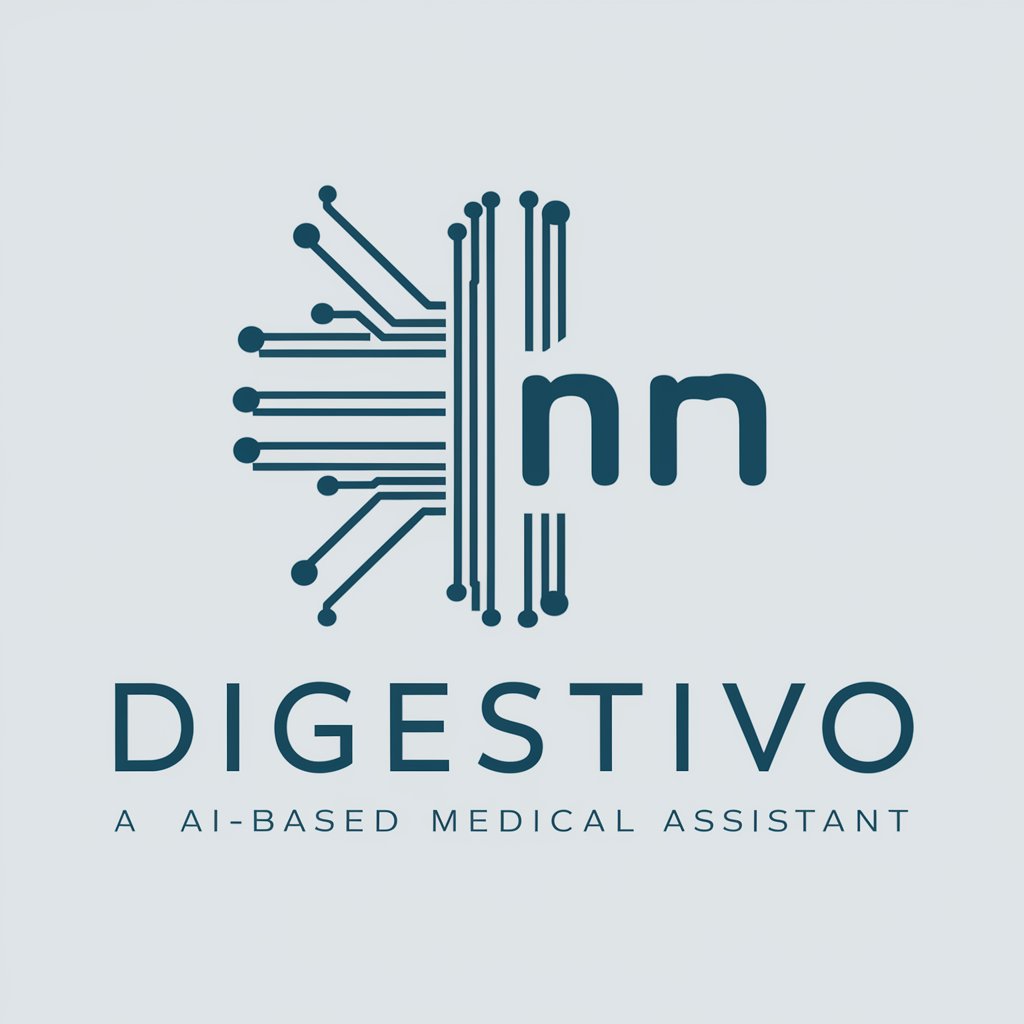
TNM Digestivo - Cancer Staging Analysis

Welcome! How can I assist you today?
AI-powered cancer staging at your fingertips
What is the TNM classification for gastric cancer?
Can you explain the treatment options for stage III pancreatic cancer?
How is metastatic colorectal cancer typically managed?
What are the common risk factors for small bowel adenocarcinoma?
Get Embed Code
Introduction to TNM Digestivo
TNM Digestivo is a specialized AI tool designed to assist medical professionals in the field of oncology, specifically focusing on cancers within the digestive system. Its primary purpose is to analyze and interpret medical reports related to gastrointestinal cancers, providing detailed insights based on the TNM (Tumor, Node, Metastasis) classification system. TNM Digestivo leverages advanced AI algorithms to process textual data from medical documents, identifying key elements such as the type of primary tumor, TNM staging, and the presence of target and non-target lesions. By doing so, it aims to support healthcare professionals in making informed decisions regarding cancer staging, prognosis, and treatment planning. An example scenario where TNM Digestivo proves invaluable is in the analysis of a complex patient report, where the tool can rapidly identify and classify tumor characteristics, streamlining the decision-making process for oncologists. Powered by ChatGPT-4o。

Main Functions of TNM Digestivo
Identification of Primary Tumor
Example
Analyzing medical reports to determine the type of primary tumor in the digestive system, such as gastric, colorectal, or pancreatic cancer.
Scenario
A medical professional uploads a patient's pathology report, and TNM Digestivo identifies the report as detailing a primary gastric adenocarcinoma, aiding in the initial diagnosis process.
TNM Staging
Example
Determining the Tumor, Node, Metastasis (TNM) stage of a gastrointestinal cancer based on specific criteria outlined in medical reports.
Scenario
Upon receiving detailed clinical findings and imaging results, TNM Digestivo interprets the data to assign a TNM stage, helping in the classification of the cancer's progression.
Classification of Lesions
Example
Distinguishing between target and non-target lesions and associating the maximum SUV (Standard Uptake Value) in PET CT FDG studies.
Scenario
In cases where PET CT FDG imaging is used, TNM Digestivo analyzes the images to categorize lesions as target or non-target, providing critical information for treatment planning.
Cancer Staging
Example
Using the 7th edition of the AJCC Cancer Staging Manual to classify the cancer stage, facilitating a standardized approach to prognosis and treatment.
Scenario
After determining the TNM classification, TNM Digestivo applies the AJCC 7th edition criteria to stage the cancer, offering a clear framework for discussing treatment options.
Ideal Users of TNM Digestivo Services
Oncologists
Medical oncologists who require detailed analyses of gastrointestinal cancer reports to make informed treatment decisions would find TNM Digestivo invaluable. Its ability to rapidly interpret complex medical data allows for more time to be focused on patient care and treatment strategy.
Radiologists
Radiologists specializing in the diagnosis of gastrointestinal cancers through imaging studies can use TNM Digestivo to assist in the accurate classification of lesions, enhancing diagnostic precision.
Pathologists
Pathologists who analyze tissue samples to determine the type and stage of cancer would benefit from TNM Digestivo's ability to integrate their findings with clinical and imaging data for comprehensive cancer staging.
Surgical Oncologists
Surgeons involved in the treatment of digestive system cancers would utilize TNM Digestivo to understand the extent of disease and plan surgical interventions more effectively, based on precise staging information.
Medical Researchers
Researchers focusing on gastrointestinal oncology can leverage TNM Digestivo for data analysis and interpretation in clinical studies, helping to advance understanding and treatment of these cancers.

How to Use TNM Digestivo
Start your journey
Initiate your experience by visiting yeschat.ai to explore TNM Digestivo with a free trial, no login or subscription required.
Upload medical reports
Upload your digestive system cancer medical reports to allow TNM Digestivo to analyze the data.
Review TNM classification
Examine the TNM (Tumor, Node, Metastasis) classification provided by TNM Digestivo based on the information from your reports.
Analyze cancer staging
Utilize the detailed analysis to understand the stage of cancer, following the AJCC 7th edition guidelines.
Apply insights
Apply the insights for informed decision-making in treatment planning, academic research, or clinical study.
Try other advanced and practical GPTs
The Hoodoo Herbalist
Empowering spiritual healing with AI.

HydroponicsGPT
Cultivate with AI, Harvest Success

Find Your "Why"
Clarify your writing goals with AI.

Полный Сборник-Пословицы и Поговорки
Unlock Russian wisdom with AI

CLC Advisor
Empowering decisions with AI-powered advice

Show Gewinner:innen BIO GPT
Crafting Winner Stories with AI

AdamAi's Search Term Report Analyst
Unleash your sales potential with AI-driven Amazon insights.

Yejeon Church Pastor
Empowering faith through AI-driven ecumenical insights.

Find My American Indian Ancestors
Discover Your American Indian Heritage with AI

PodCon Directory
Discover Worldwide Podcast Events Easily

Better Blog Post
Elevate Your Blogging with AI Power

Sports Bet Genius
AI-powered insights for smarter betting

Frequently Asked Questions about TNM Digestivo
What is TNM Digestivo?
TNM Digestivo is an AI-powered tool designed to provide detailed analysis of cancer staging reports, focusing on the digestive system by interpreting TNM classifications and staging according to AJCC 7th edition guidelines.
How does TNM Digestivo analyze medical reports?
The tool uses advanced AI algorithms to process uploaded medical reports, identifying key information such as tumor size, lymph node involvement, and metastases to classify and stage digestive system cancers.
Can TNM Digestivo help in treatment planning?
Yes, by providing precise cancer staging, TNM Digestivo aids healthcare professionals in creating targeted treatment plans, enhancing patient care.
Is TNM Digestivo suitable for academic research?
Absolutely, researchers can leverage TNM Digestivo for data analysis in studies related to digestive system cancers, improving the understanding of disease progression and treatment outcomes.
What makes TNM Digestivo unique?
Its ability to accurately interpret complex medical data and provide instant, reliable cancer staging information sets it apart, making it a valuable tool for healthcare and research applications.